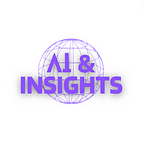A guide to maintaining data privacy and security in data engineering
Data privacy and security are critical concerns in any context, but they are particularly important in data engineering. As data engineers work to collect, store, and process large amounts of data, they must ensure that sensitive information is protected at all times. In this blog post, we will explore some of the key challenges and considerations involved in maintaining data privacy and security in a data engineering context, and provide best practices and real-world examples to help data engineers navigate this complex landscape.
One of the main challenges of maintaining data privacy and security in data engineering is ensuring that data is properly protected at all points in the pipeline. This includes ensuring that data is encrypted both in transit and at rest, and that access to sensitive data is restricted to authorized users only. In order to achieve this, data engineers must be familiar with a wide range of security technologies and protocols, such as SSL/TLS, VPNs, and firewalls. They must also be familiar with best practices for data access control, such as role-based access control and least privilege.
Another important consideration in data engineering is the use of cloud-based services. While cloud-based data engineering tools and services can be a cost-effective and scalable solution for data storage and processing, they also introduce new security risks. For example, data that is stored in the cloud is vulnerable to breaches and other types of attacks. Additionally, data engineers must be familiar with the security controls and compliance requirements of the specific cloud provider they are using.
In addition to these technical challenges, data engineers must also be familiar with legal and regulatory considerations related to data privacy and security. For example, data engineers must be familiar with regulations such as the General Data Protection Regulation (GDPR) and the Health Insurance Portability and Accountability Act (HIPAA), which have specific requirements for data protection and handling.
To help data engineers navigate these challenges, there are several best practices they can follow. For example, they should conduct regular security assessments to identify and address vulnerabilities, implement security controls and protocols to protect data at all points in the pipeline, and regularly train and educate employees on data privacy and security best practices. Additionally, data engineers should work with legal and compliance teams to ensure that they are in compliance with all relevant regulations.
Maintaining data privacy and security in data engineering is a complex and critical task that requires a deep understanding of both technical and legal considerations. By following best practices, staying up-to-date on the latest security technologies and protocols, and staying aware of changing regulatory requirements, data engineers can help ensure that sensitive information is protected at all times.
